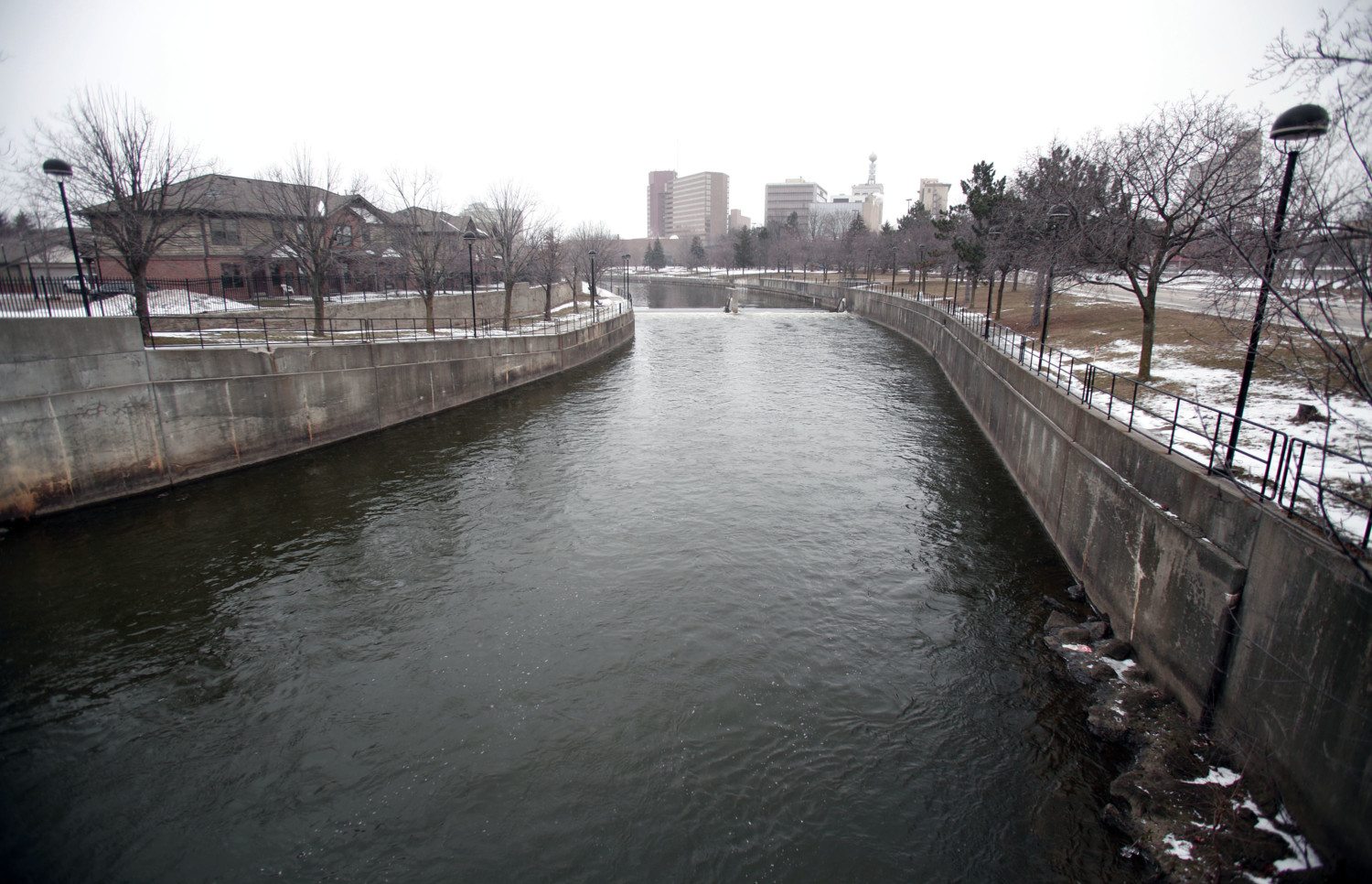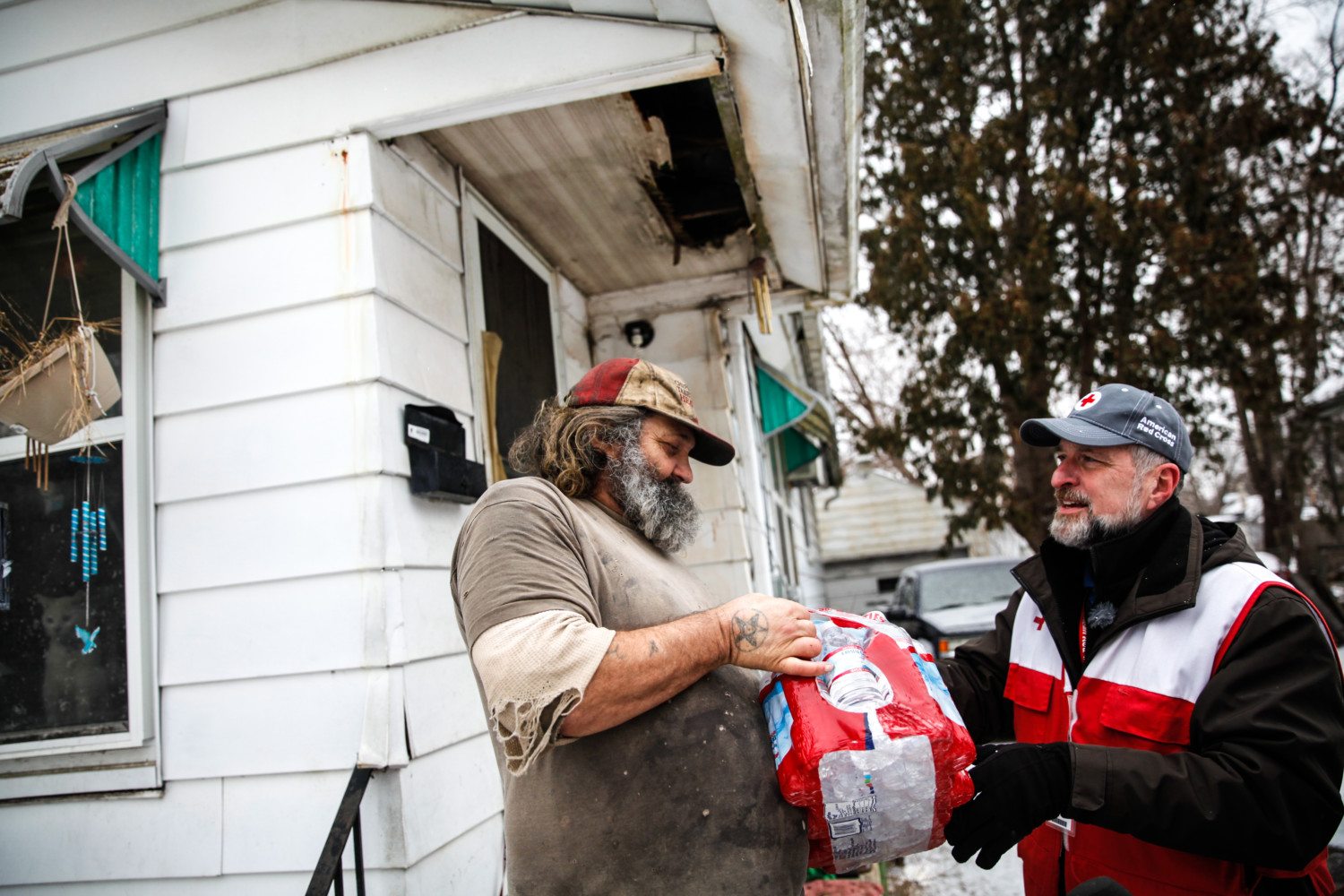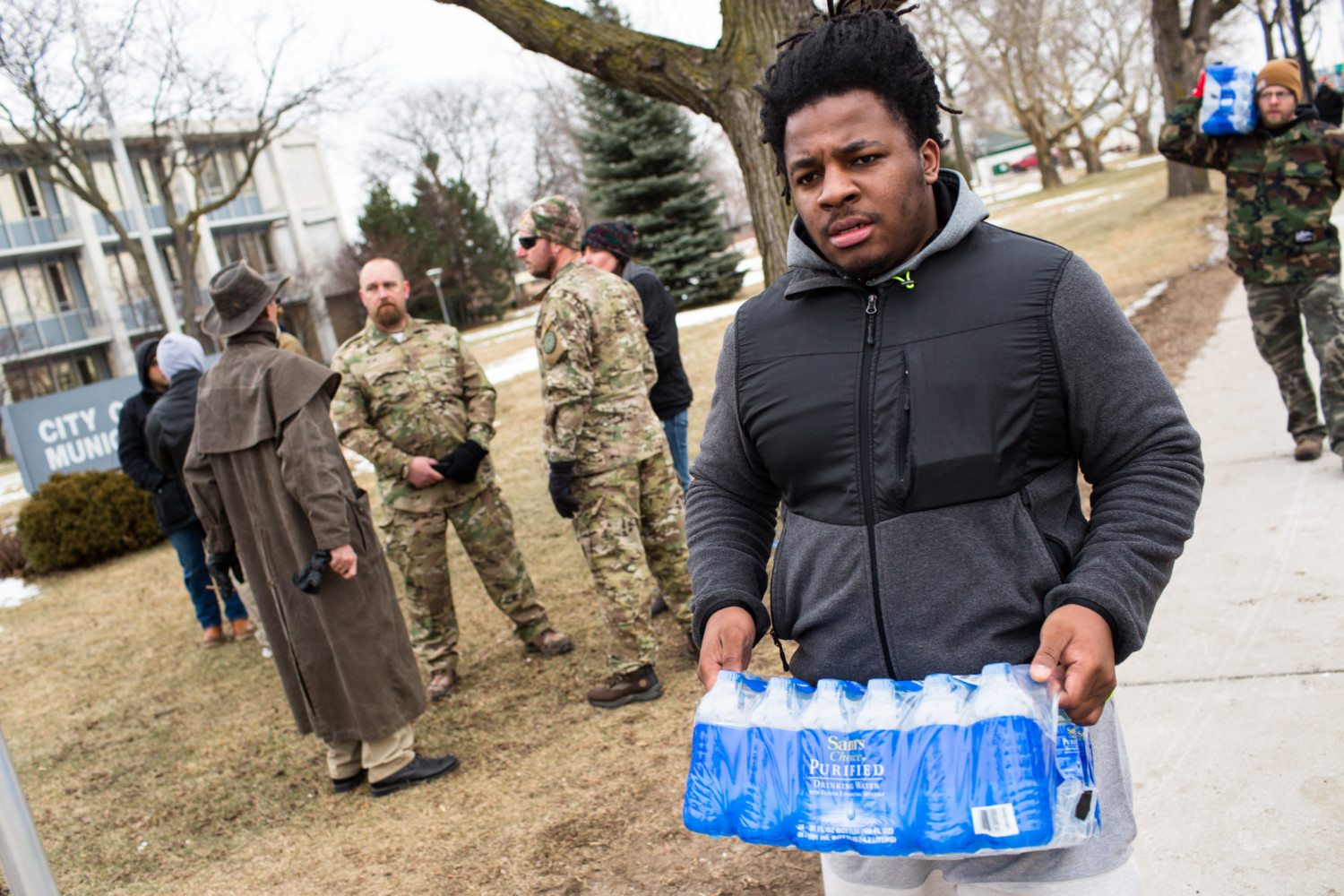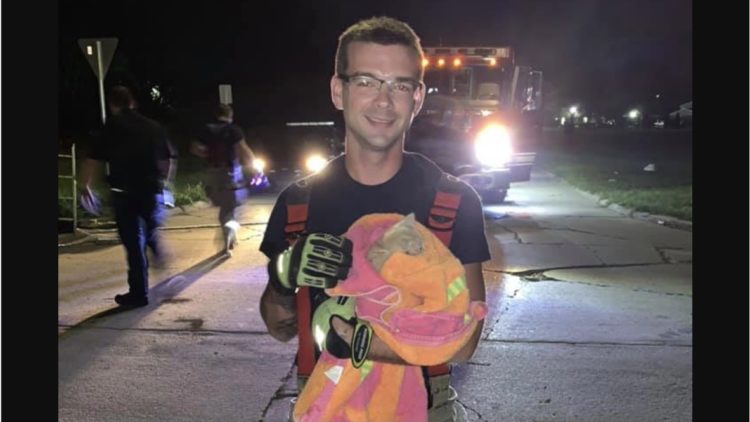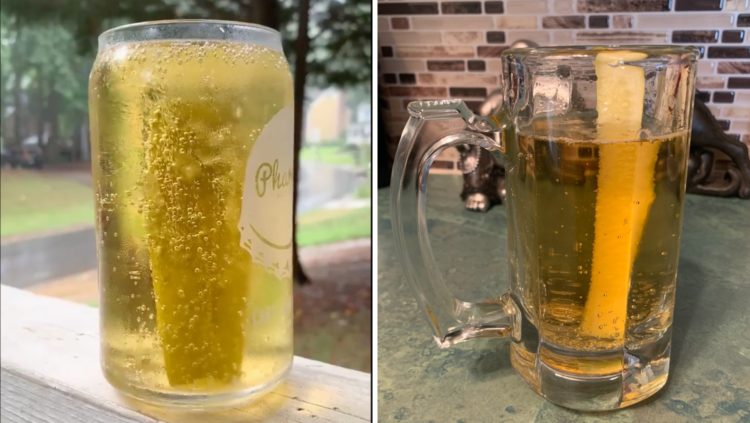Witness To A Crisis: I Work In Flint, Michigan Where Residents Still Can’t Drink Their Water
It has been more than 1,000 days since the residents of Flint, Michigan felt safe drinking their water. Throughout the last nearly three years, those living in the city have struggled with things many of us take for granted: the ability to drink water from their faucets, bathe their children, cook a meal.
I do not live in Flint. I am thankful and lucky. But I do work in the city, for a local TV news station, and have been there since the beginning. From the first day the new source of water began flowing, until now, I have seen it. I have borne witness to a crisis.
I have listened to people cry on the phone. I’ve read their emails and Facebook comments. I’ve spent hours organizing pages online that contain water distribution information and phone numbers to call for help if anyone needed a ride to a distribution site, or help hooking up faucet filters.
I’ve also seen a community come together in a time of need. Plumbers hooking up filters for free, people giving rides to strangers so they can get bottled water, people from all over the country donating water and money.
It’s times like this when you really do see the best side of humanity, but we shouldn’t have to—because it shouldn’t have happened.
To go through the specifics of this crisis would take more than one story. It has a multitude of layers and so many details that it would take hours to tell. But here is a semi-brief history for those who are unfamiliar.
On April 25, 2014, the city temporarily switched its water source from the Detroit Water and Sewerage Department to the Flint River while a new pipeline was being built. This pipe was meant to save money and distribute water from Lake Huron to Flint and other communities in the surrounding counties.
The Department of Environmental Quality (DEQ) did not require, in this instance, corrosion-control treatment in the water to prevent lead from leaching into the pipes, and the city did not provide it. This even though the river water is more corrosive than Lake Huron water, and the pipes are made with iron and lead. Soon, residents began to complain about the color and smell of the water. They were experiencing rashes and other physical symptoms.
Fast-forward to August of 2015. After months of residents complaining, boil water advisories and the General Motors engine plant stopping the use of Flint water due to rust, a Virginia Tech University researcher found lead in the water, and a local doctor found elevated blood-lead levels in Flint children.
On Sept. 25, 2015, more than a year after the switch to the Flint River, the city of Flint issued a lead advisory to residents, followed by a public health emergency announcement from the local health department, which told residents not to drink the water.
Michigan Governor Rick Snyder issued a news release, saying that while the water was safe, homes with lead plumbing could have higher levels of lead. On Oct. 16, the city switched back to the Detroit Water System. The damage to the pipes, however, was already done.
From the initial finding of the lead until now, much has changed. But this crisis is far from over. The story may have fallen from the national headlines, but it’s very much still active on a local level. Residents still can’t drink their water without a filter, and many don’t feel safe even doing that.
The DEQ has since been found responsible, and multiple people have been criminally charged. Water distribution centers are still active and distribute water and filters to residents, and millions of dollars in funding has come into Flint for pipe replacement. A Democratic presidential debate was held in Flint, and then-President Barack Obama even paid a visit in order to talk to residents.
As a journalist, a presidential debate and a presidential visit are beyond exciting. (It’s not every day the president visits your city.) As a human being, however, it’s frightening. The President of the United States wasn’t here to tout job creation or to loll about on vacation. He was here to talk to women who drank lead-tainted water while pregnant. He was here to talk to people afraid to bathe their children in their own homes.
Lead poisoning can cause irreversible damage in children, and it may be years before Flint knows all of the actual effects of the crisis. It isn’t until 2019 that the city hopes to finish pipe replacement for all homes.
While it’s hard to say anything good came out of this, it has led to testing in other cities. After all, this isn’t something to ignore simply because it’s not happening where you live. It isn’t contained to Flint. It can, and may already be, happening all over the country.
Being in news gives one multiple perspectives to situations and sometimes even makes us feel like we’re living the stories. Not this time. I do not know and will never pretend to know what it is actually like to live in a place where I can’t drink the water or feel safe taking a shower.
I do know, however, that it has made me even more grateful for the things I have in life. If there is one lesson learned from all of this—aside from the lessons hopefully learned by those responsible—it is that what we take for granted, someone else may be wishing for.
To everyone, everywhere dealing with something you know is wrong, do not give up the fight. If it weren’t for the persistence of some Flint residents, this crisis may not have come to light. Keep fighting for what is right and never, ever give up.


